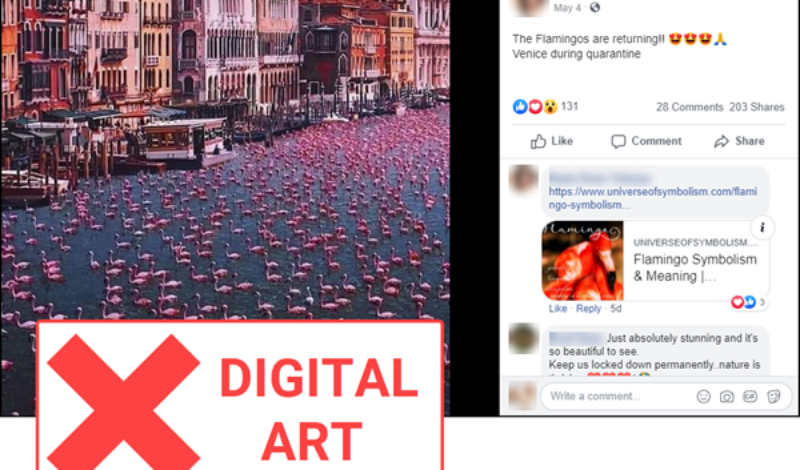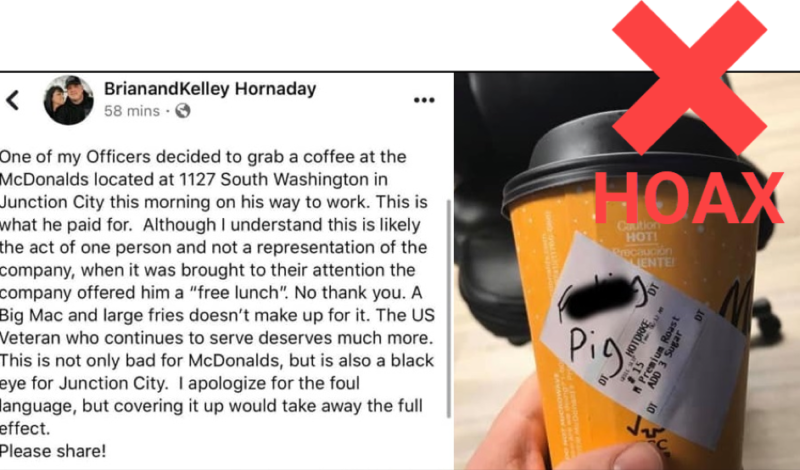
Rumor Review
Rumor rundown: Partisan falsehoods, logical fallacy, doctored content
Falsehoods about U.S. politicians and COVID-19 continue to go viral. A flawed study about violence against women and doctored content gained traction on social media by appealing to our emotions and beliefs. Below, we explain why these posts are actually misinformation and should not be believed, liked, shared or otherwise amplified.
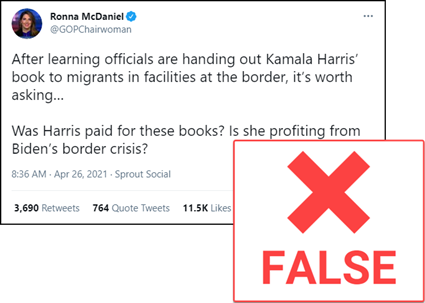
NO: Officials at a facility for migrant children brought from the U.S.-Mexico border were not handing out a children’s book written by Vice President Kamala Harris. YES: A copy of Harris’ 2019 book Superheroes Are Everywhere was donated during a book and toy drive to an “emergency intake site” for unaccompanied migrant children at the Long Beach Convention and Entertainment Center. YES: The baseless claim that copies of the book were included in welcome kits at taxpayers’ expense and distributed to each child at the site originated with an erroneous report published by the New York Post on April 23. YES: Fox News — which, like the Post, is owned by the Murdoch family — also published the report. YES: The Post eventually added an editor’s note at the end of the story to update it with a correction after it had spread widely on social media. YES: Fox News also made updates and corrections to its report.
Note: The false assertion that the book was being given to each child at the facility appears to have been based on a photo of a single donated copy left on a cot.
Also note: Laura Italiano, the Post reporter who wrote the original report, announced her resignation from the paper on Twitter on April 27 and claimed she was “ordered to write” the false report. The Post issued a statement denying Italiano’s claim.
Related:
- “How a photo and a Long Beach book drive led to a false story and attacks on Kamala Harris” (Erin B. Logan, Los Angeles Times).
- “New York Post Reporter Who Wrote False Kamala Harris Story Resigns” (Michael M. Grynbaum, The New York Times).
- “Fox News host admits his show was wrong about Biden limiting red meat consumption” (Daniel Dale, CNN).
Idea: Have students evaluate the steps the New York Post and Fox News took to correct the false report. Were the corrections sufficiently clear? Did the organizations hold themselves accountable for the error? Did they explain how it occurred?
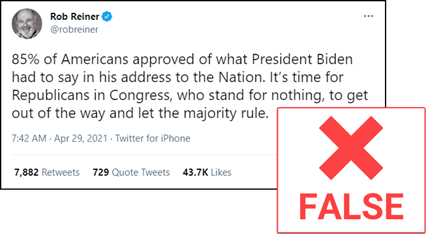
NO: 85% of Americans did not approve of President Joe Biden’s April 28 speech to a joint session of Congress — the first of his presidency. YES: According to a CBS News / YouGov poll, 85% of American speech-watchers — only 18% of whom identified themselves as Republicans — approved of it.
Note: As CNN’s chief media correspondent Brian Stelter noted, the television ratings for Biden’s speech were significantly lower than similar speeches by past presidents. But such ratings do not necessarily reflect the total reach of the speech because they can’t take internet and other viewers into account.
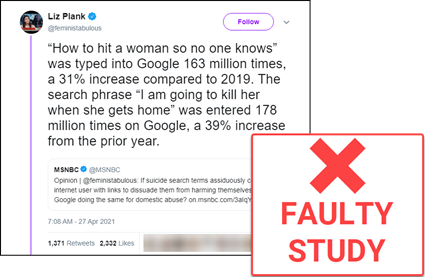
NO: The two violent phrases in this tweet were not “typed into Google” 163 million and 178 million times, respectively, over several months in 2020. YES: These figures that claimed a big increase in such searches from the prior year were based on a flawed study. YES: Searching these phrases returns several billion search results (the number of webpages a given search returns) but these should not be mistaken for search trends (the frequency of specific searches over time). YES: An analysis by the fact-checking website Snopes (linked above) using the Google Trends search tool determined that almost “no one used the website to look for information on ‘how to hit a woman so no one knows,’ including during the time window referenced in the study (March to August 2020).”
Note: Violence against women is alarmingly common. According to the World Health Organization, about 30% “of women worldwide have been subjected to either physical and/or sexual intimate partner violence or non-partner sexual violence in their lifetime.”
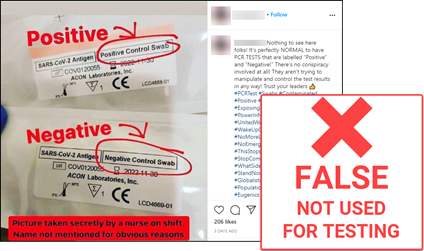
NO: These are not rigged COVID-19 tests. YES: They are control swabs included with some test kits that ensure they are working properly.
Note: The claim that this photo was “taken secretly by a nurse” is an example of an appeal to authority, a logical fallacy in which the opinion or endorsement of an authority is used as evidence to support an assertion. Because the nurse isn’t named, this example could also be classified as an appeal to anonymous authority (also known as an appeal to rumor).
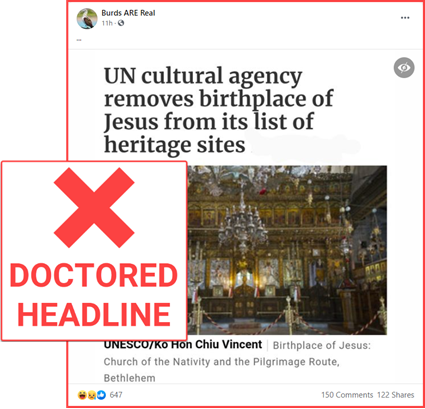
NO: The United Nations Educational, Scientific and Cultural Organization (UNESCO) did not remove the Church of the Nativity, officially recognized as the birthplace of Jesus, from its World Heritage List. YES: The screenshot in this Facebook post has been doctored to conceal the last two words in the actual headline: “in danger.” YES: UNESCO in 2012 added the site to its List of World Heritage in Danger because it had been damaged by water leaks. YES: The church was removed from the “in danger” list in 2019.
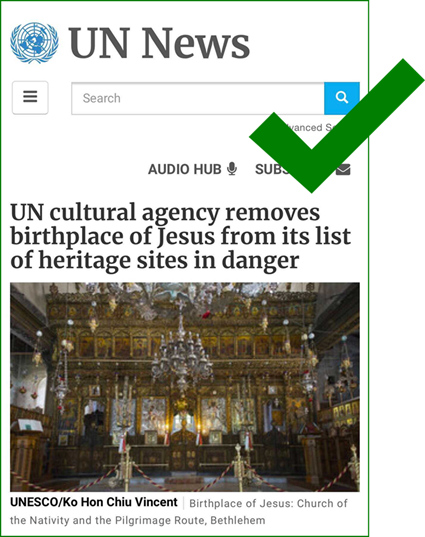
A screenshot of the 2019 report published by UN News showing the actual headline, which includes the words “in danger” at the end. A doctored version that recently went viral obscured these two words and generated outrage.



